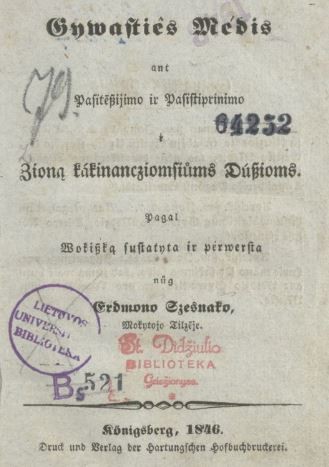
Excerpt from The Book Carriers, by Uladzimir Karatkevich, translated from Belarusian
In the forest, two or three miles from its edge, at the sole location that had been successfully claimed from bog and forest, there stood a border post, whose men had orders to catch smugglers that would come from the Prussian side, and to prohibit local men and women from walking across the border, to their in-laws, to celebrate hatches and matches. That was not to be encouraged, since the in-law, never mind his thick local accent, was a Prussian subject and paid taxes to the king – not to the tsar, as ought to be expected from every proper person.
All in all, the border post men had paid little attention to the instruction earlier; for their modest pay, they wouldn’t run after every peasant – let him go. Yet a year before, the situation had changed, and their orders were to watch out most vigilantly.
Because some people, in a burst of filial gratitude, had thrown two bombs at the tsar the liberator and blasted him to pieces. That was unheard of and an affront to God. So the assassins were hanged, and a red-granite temple was erected on the site of the attack.
Yet nothing had changed. The martyr was resting in peace, that is, in the royal family’s burial cathedral, while tempters were instigating and stirring up the public. And that’s why the border guards got little sleep: dissent was carried in from abroad – Samogitian, Russian, Polish, and most recently, as was vaguely rumored, also some local, native dissent.
So far, nobody had seen those books firsthand, yet they were said to have appeared. Appeared, some printed in the Latin script, some in civil Cyrillic, and this very duality was somehow suspicious and alarming.
Perhaps, it was dissent indeed, for native books and native speech had long before been officially banned. And who the hell could be sure that wasn’t another channel the instigators and long-haired propagandists had found to preach their thoughts?
So the order went out to look out for and catch peddlers, and specifically carriers of books not cleared by customs and thus deemed dangerous. Book-smuggling was the ancient trade of some rural locals. Literate men used to buy books and pictures printed abroad. These were cheaper, especially with no tariff on top of the price. And foreigners printed any books: in Samogitian, in Polish and in Russian – demand is king.
And at last it was ordered that the book carriers be caught.
Beginning of the story: https://journaly.com/post/34746
title: The Book Smugglers
@CocoPop Thanks a thousand for your comments! As you see, the story changes its character and turns political at this point, and imho loses its appeal.
I have to agree. The beginning was so captivating.